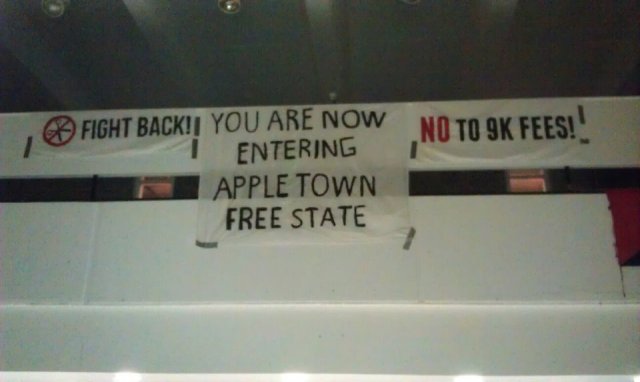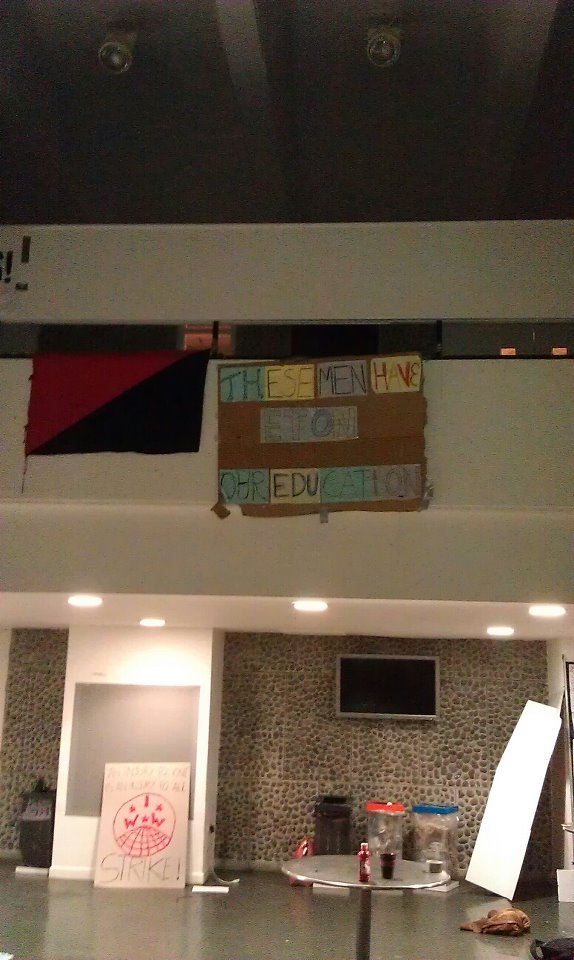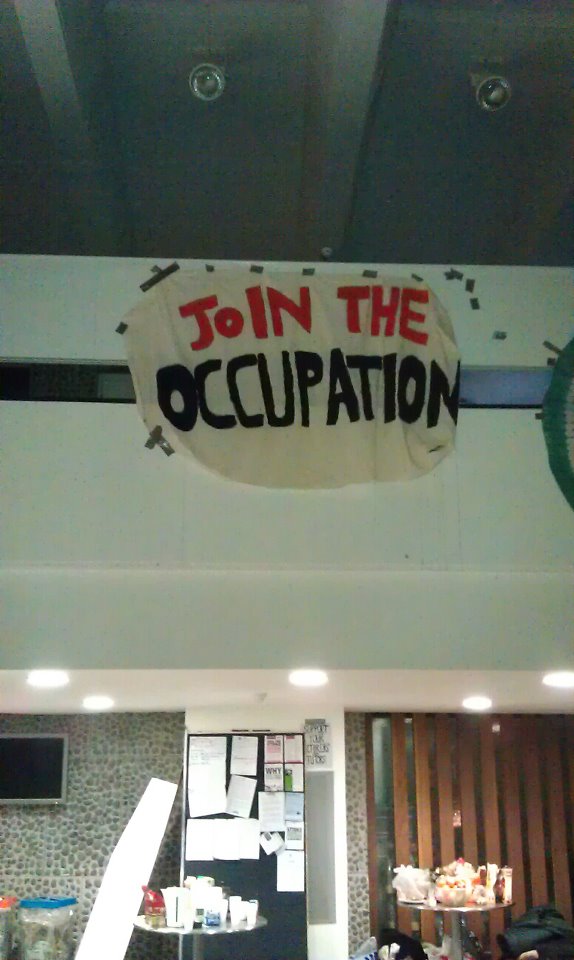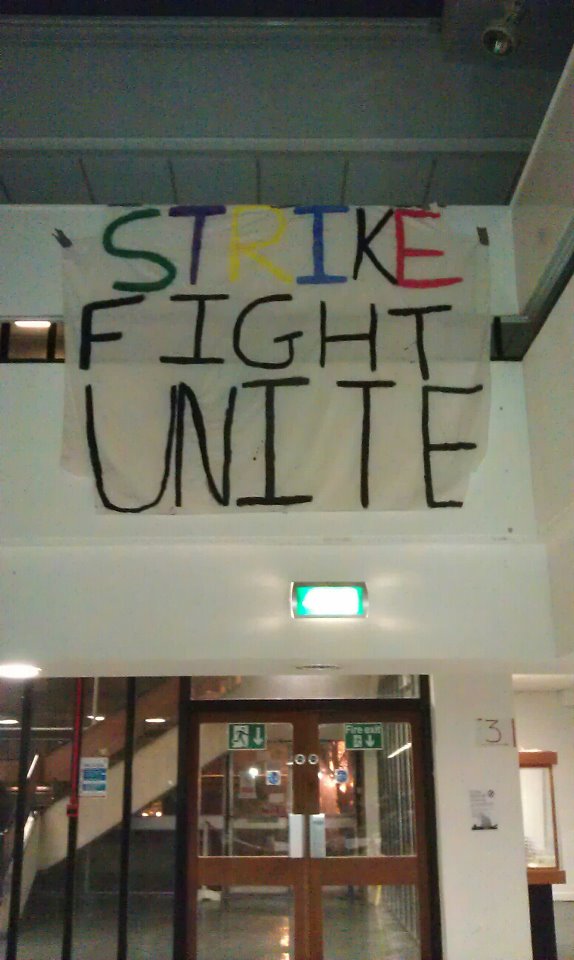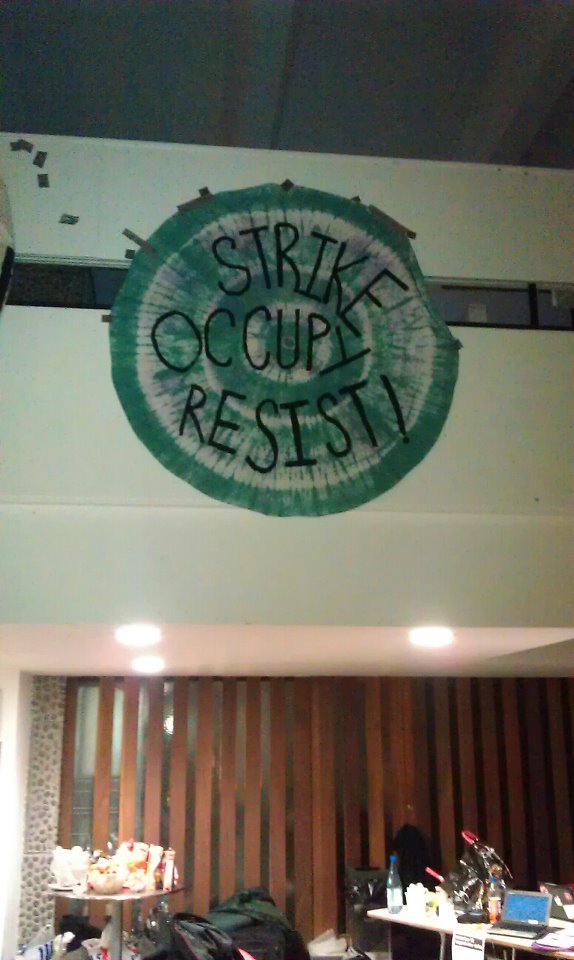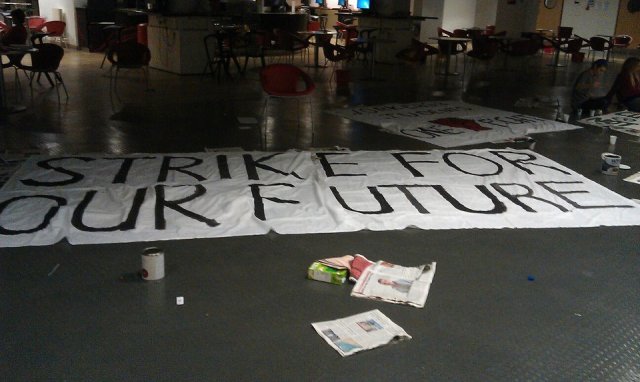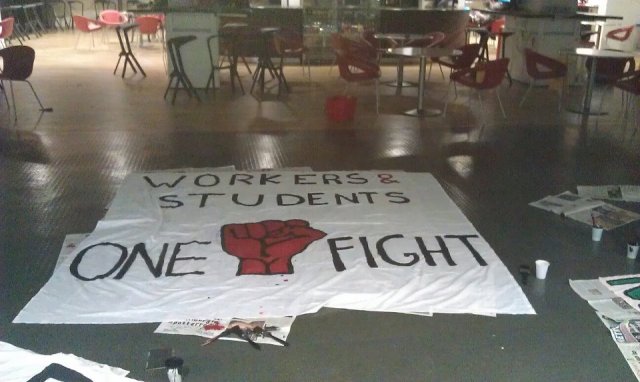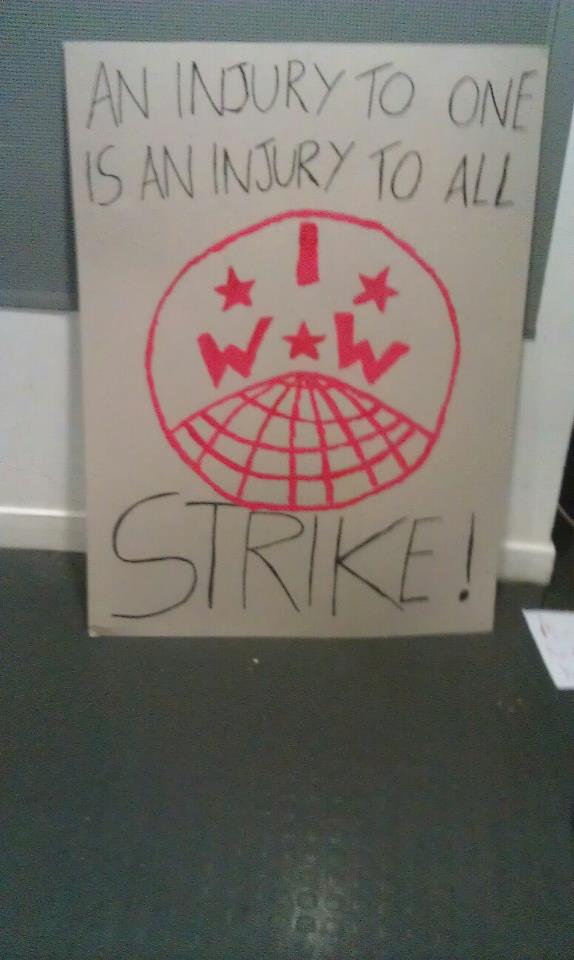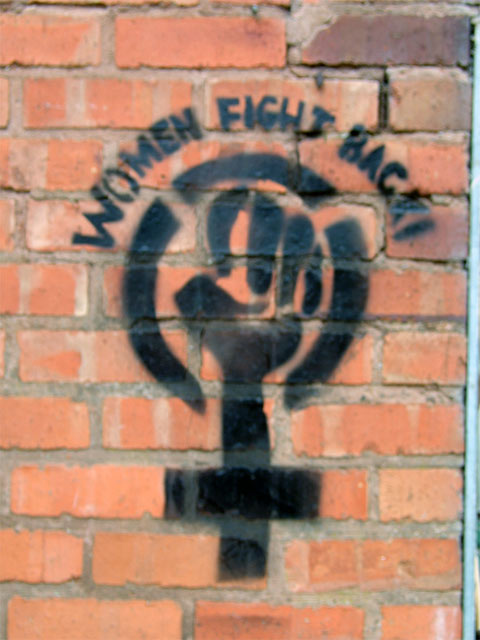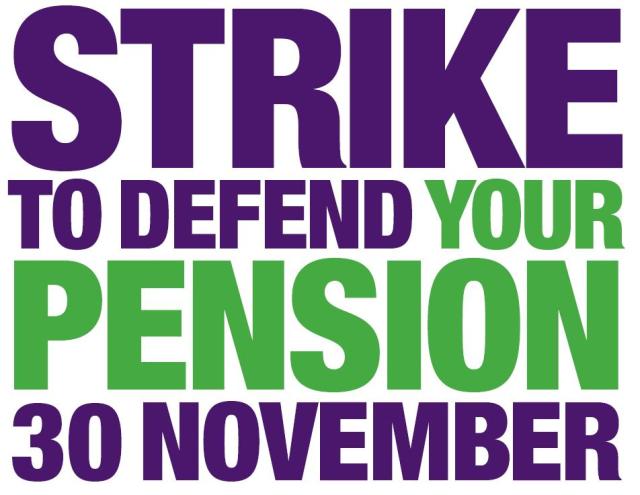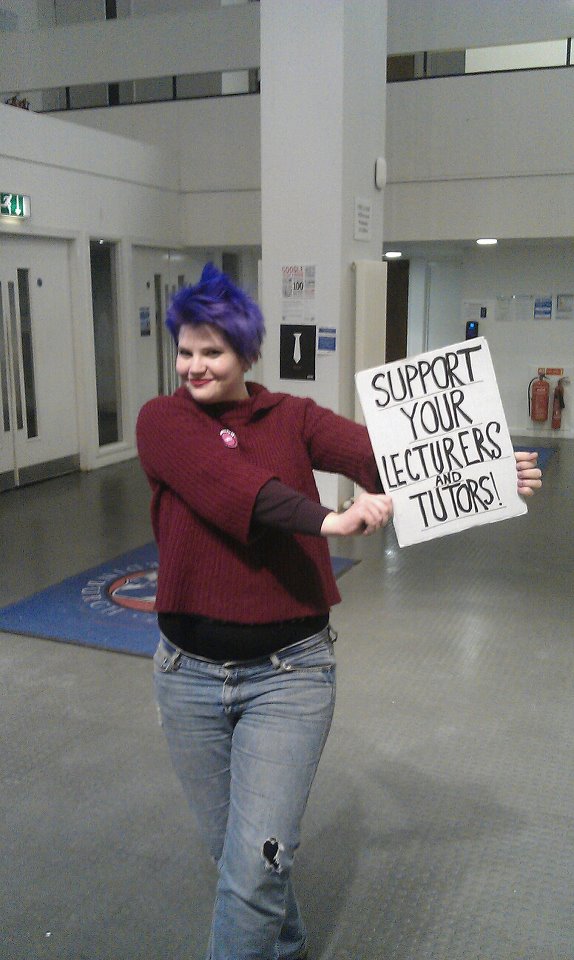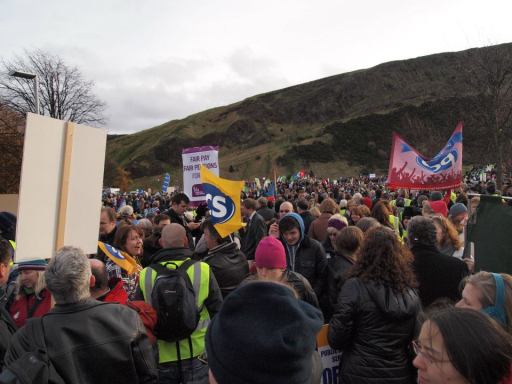
Students and educational workers were yesterday heavily involved in a day of strikes, pickets, occupations and protests in response to Westminster’s proposed pension changes and ideological dismantling of public services.
The day began early, at around 6am, when unknown groups of activists super glued locks and entrances to buildings around Edinburgh University campus. Doors to the David Hume Tower, Crystal Macmillian Building, Main University Library and George Square lecture theatre were, among a number of others, glued shut in an effort to stop the building being opened on a strike day. The University were yet to comment on their response to this action and its effects on building closure, but one source who works for the Uni and wishes to remain anonymous said the lockdown caused ‘maximum disruption’ and security staff ‘went mental’.
Banners were dropped from the medical school and anonymous pro-strike graffiti was found to be on a number of walls around the University.

Around 80 students who had been taking part in the Appleton Tower occupation ended their stay at 6.30am to join pickets and actions around the city – with many meeting more activists from the city to join an open top ‘Battle Bus’ which toured around various pickets from 7am till 9.30am, distributing coffee, hot rolls and support to picketers. This bus, organised by a number of students and activists from the Edinburgh branch of the Coalition Of Resistance, was enthusiastically received at pickets at the Scottish Parliament, the Tollcross Job Centre, Tynecastle High School and Edinburgh College of Art amongst others.
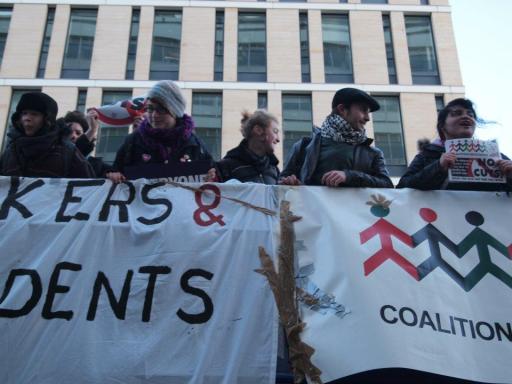
Morning pickets at Kings Buildings, Moray House, Charles Stewart House, Old College, New College, Main Library, Teviot Place and Edinburgh College of Art were well attended by students and lecturers alike, with many potential picket crossers engaging in discussion with those on strike and choosing to turn back in solidarity with the strike throughout the day.
A crowd of lecturers, tutors, library workers and students gathered at 10am outside the main university library to take part in a ‘Teach Out’ with speeches, songs and poems from supportive academics, union workers and students.
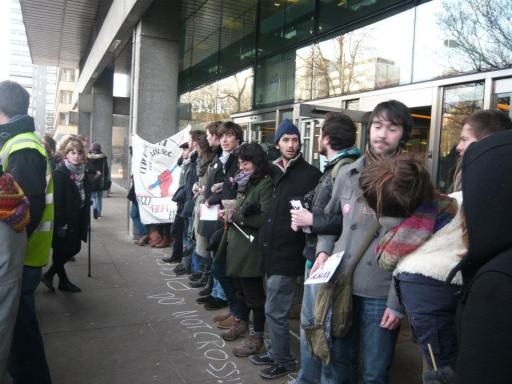
This moved to a student feeder rally in Bristo Square, where around 300 students gathered in order to join the main union rally near Edinburgh Castle. This main protest march, as part of the STUC’s ‘Day of Action for Pension Justice’, saw workers, families, students and claimants numbering at least 20,000 march from Edinburgh Castle to Scottish Parliament. Despite an early start for many, the student part of the march was full of life and energy, with sit downs in the road, a constant supply of innovative chanting and a real sense of change in the air.
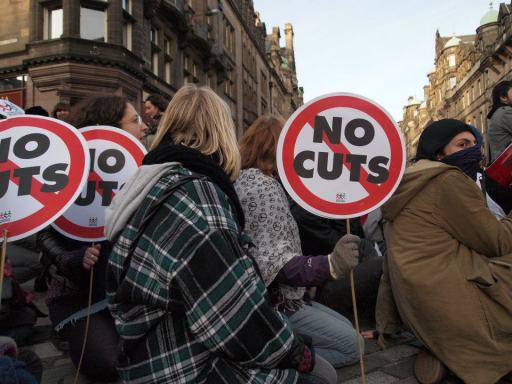
By the time the march was coming to an end reports were already coming in of an occupation at the Forest Cafe church hall space, which has been empty since the community cafe and social centre which previously resided there was forced out by new owners following the University of Edinburgh Settlement’s fraudulent collapse into bankruptcy.
People from within the occupation tonight released this statement:
‘We are occupying the Forest Café. We need people. There’s free access so far but as soon as the police manage to get in contact with owners they will probably not let anybody in. Please, if you can spend the night come ASAP. with bedding. please bring extra bedding with you so people inside do not need to risk going out and not being let in again.
and if you can’t come, it’d be a massive help if you could drop any type of bedding .’
More info at Indymedia.
This comes as George Osborne and the Con-Dem coalition declare all-out war on workers; with an extra 310,000 public sector job losses, a new pay cap to follow current wage freezes and the implentation of local rather than national pay rates alongside the current plans to drastically damage public pension provision. All this, as the Government’s decision to implement deep, pro-market spending cuts plunges the nation into the worst economic outlook since the end of the Second World War. Students and workers understand that these measures effectively amount to a right-wing destruction of our public services and yesterday they took action as part of the largest UK strike in decades in a huge show of solidarity, anger and hope.














